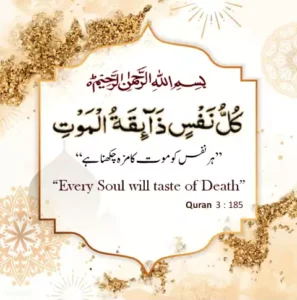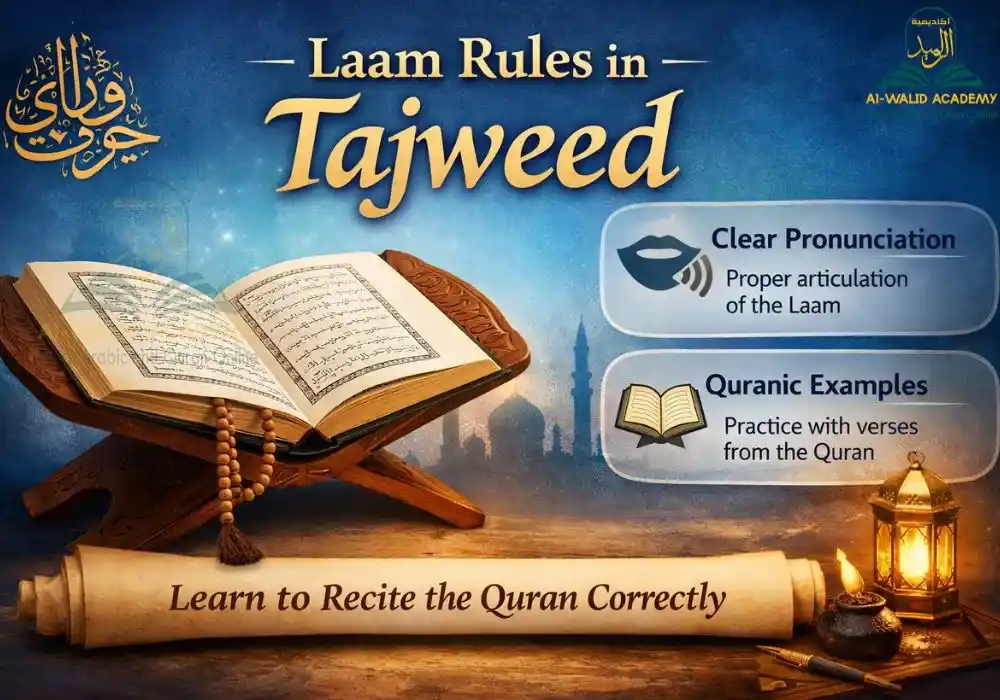The Quran contains 165 instances where the concept of death is explicitly mentioned in its verses, all emphasizing that death is a certain and undeniable reality. Everyone understands and accepts this truth. Additionally, many death verses in the Quran convey implicit meanings, sharing the same essence as those where the term “death” is directly mentioned. Below, we will explore more about these death-related verses in the Quran.
Which Quran surah mentioned the last moment of death?
The moments before death are among the most impactful in everyone’s life, as they serve as a test for every Muslim. Witnessing someone in the throes of death is a reminder that life is fragile and that death can surprise us without warning, as it is unknown when or where it will come.
This mystery often evokes fear in Muslims when they see someone in their final moments, they may also wonder about Death verses in the Quran to gain a deeper understanding of death, especially the verses related to the final moments before passing.
These are some of the verses that describe these moments:
- “Falawla ithaa balaghatil hulqoom. Wa antum heenaithin tanzuroon.” (Al-Waqia 56:83-84)
- “Then why, when the soul at death reaches the throat, and you are at that moment looking on?”
-
“فلولا إذا بلغتم حلقوم وأنتم تناسون”.
This verse highlights the reality of death, describing the precise moment when the soul reaches the throat, a stage witnessed by those around the dying person.
- “Wa ja’at sakratul mawti bil-haqqi, dhalika ma kunta minhu taheed.” (Surat Qaf 50:19)
- “And the intoxication of death will bring the truth; that is what you were trying to avoid.”
-
“وجاءت سكرة الموت بالحق، ذلك ما كنت منه محصيًا”.
This verse emphasizes the inevitability of death and the undeniable reality it brings, which no one can escape or avoid. It serves as a powerful reminder of the ultimate meeting with truth.
- “Wa law tara idh-iz-zalimoon fi ghamarati-l-mawti wal-mala’ikatu basitu aydihim akhrijoo anfusakum.” (Surat Al-An’am 6:93)
- “If you could but see when the wrongdoers are in the throes of death while the angels extend their hands, saying, ‘Deliver your souls!'”
-
“ولو ترى إذ الظالمون في غمرة الموت والملائكة باسطوا أيديهم يقولون أخرجوا أنفسكم”
This verse paints a vivid image of the agony experienced by wrongdoers at the time of death, as angels command their souls to leave their bodies. It reflects the weight of accountability and the reality of death for those who deny the truth.
Read more about: What to Say When Someone Dies in Islam?
What does the Quran say about the time of death?
 Many Quranic verses talk about matters of death, but the most prominent thing mentioned about death is that in the throes of death, some people hasten to repent and believe that it will be accepted, but this is not true. This has been mentioned in the Quran in more than one place, the most famous of which are the following:
Many Quranic verses talk about matters of death, but the most prominent thing mentioned about death is that in the throes of death, some people hasten to repent and believe that it will be accepted, but this is not true. This has been mentioned in the Quran in more than one place, the most famous of which are the following:
- “Hatta idha ja’a ahadahum-ul-mawtu qala rabbi irji’oon.” (Surat Al-Mu’minun 23:99)
- “Until, when death comes to one of them, he says, My Lord send me back”
-
“حتى إذا جاء أحدهم الموت قال رب ارجعون”.
This verse expresses the regret of a person at the moment of death, pleading for a second chance to return to life and do good deeds. It serves as a reminder of the importance of preparing for the Hereafter before it’s too late.
- “Walaqad kuntum tamannawna-l-mawta min qabli an talqawhu faqad ra’aytumoohu wa antum tanzuroon.” (Surat Aal-E-Imran 3:143)
- “And you had certainly wished for martyrdom before you encountered it, and now you have seen it while you were looking on.”
-
“ولقد كنتم تمنون الموت من قبل أن تلقوه فقد رأيتموه وأنتم تنظرون”.
This verse addresses those who longed for the honor of martyrdom, reminding them of the reality of death when it is witnessed firsthand. It underscores the seriousness and reality of the ultimate sacrifice and confrontation with death.
To read the Holy Quran in Arabic and learn more about the Arabic meanings of the Quran, you can do so through Learn Arabic And Quran Online.
Death verses in the Quran
 Everyone knows that death is inevitable and an inherent part of life, the Quran confirms this in many verses, some addressing death directly and others implicitly.
Everyone knows that death is inevitable and an inherent part of life, the Quran confirms this in many verses, some addressing death directly and others implicitly.
We have discussed and will continue to discuss many of these verses, but now, let us focus specifically on the following verse, as it is explicit and directly mentioned in the Quran:
- “Kullu man alayha fan. Wa yabqa wajhu rabbika dhul-jalali wal-ikram.” (Surat Ar-Rahman 55:26-27)
- “Everyone upon the earth will perish, and there will remain the Face of your Lord, Owner of Majesty and Honor.”
-
“كل من عليها فان ويبقا وجه ربك ذو الجلال والإكرام”.
This verse clearly illustrates the transient nature of life and the permanence of Allah, reminding us of His eternal sovereignty and the inevitability of death for all creation.
- “Kullu nafsin dha’iqatul mawt; wa innama tuwaffawna ujoorakum yawma al-qiyama.” (Surat Aal-E-Imran 3:185)
- “Every soul will taste death, and you will only be given your compensation on the Day of Resurrection.”
-
“كل نفس ذائقة الموت وإنما توفون أجوركم يوم القيامة”.
This verse highlights the certainty of death for every soul and explains that life is a test of both hardships and blessings. Ultimately, all will return to Allah for accountability.
You can take Arabic and Quran courses to learn how to read the Quran correctly.
Death in the Quran and Hadith
 Many Death verses in the Quran speak about death, as well as numerous sayings of the Prophet (peace be upon him) that directly address this topic.
Many Death verses in the Quran speak about death, as well as numerous sayings of the Prophet (peace be upon him) that directly address this topic.
Some of the most significant ones include:
- “Innaka mayyitun wa innahum mayyitoon.” (Surat Az-Zumar 39:30)
- “Indeed, you are to die, and indeed, they are to die.”
-
“إنك ميت وإنهم ميتون”.
This verse reminds us of the universality of death, affirming that even the Prophet Muhammad (peace be upon him) will face it, just as everyone else will. It highlights the inevitability of death for all beings.
- “Qul inna-l-mawta allathee tafirroona minhu fa-innahu mulaqeekum.” (Surat Al-Jumu’ah 62:8)
- “Say, ‘Indeed, the death from which you flee – indeed, it will meet you.”
-
“قل إن الموت الذي تفرون منه ملاقيكم”.
This verse emphasizes that no matter how much a person tries to avoid death, it is inevitable and will eventually confront them. It serves as a powerful reminder of the inescapable reality of human mortality.
You can Learn Quran Tafseer Online well to be fully aware of the meanings of the Holy Quran.
Death in Hadith
- “La yatamannayanna ahadukum-ul-mawta li durrin nazala bihi, fa-in kana la mahala fa-liyaqul: Allahumma ahyinee iza kanat-il-hayatu khayran li, wa tawaffanee iza kanat-il-wafatu khayran li.”
- “None of you should wish for death because of a hardship that has befallen him. But if he must wish for it, let him say: ‘O Allah, keep me alive as long as life is better for me, and cause me to die if death is better for me.”
- “عن أنس رضي الله عنه أن الرسول صلى الله عليه وسلم قال: لا يتمنين أحدكم الموت لضر نزل به، فإن كان لا محالة فليقل اللهم أحيني إن كانت الحياة خيراً لي وتوفني إن كانت الوفاة خيراً لي”.
This hadith teaches patience in the face of trials and emphasizes reliance on Allah’s wisdom, asking Him to decide what is best for us regarding life and death.
- “Akthiroo dhikra haadim al-ladhat: al-mawt”.
- “Increase your remembrance of the destroyer of pleasures: death.”
- “عن أبي هريرة رضي الله عنه قال قال رسول الله صلى الله عليه وسلم: أكثروا ذكر ههادم اللذات: الموت”.
This hadith emphasizes the importance of frequently reflecting on death, as it helps a person detach from worldly desires and focus on preparing for the Hereafter.
Read about: What Did Muhammad Said Before He Died
Every soul will taste death Quran verse in Arabic

Many Quranic verses state that all people will die at the end of their lives. Among the most important of these verses are:
“Kullu nafsin dha’iqatul mawt; wa nablookum bish-sharri wal-khayri fitnatan, wa ilayna turja’oon.” (Surat Al-Anbiya 21:35)
“كل نفس ذائقة الموت ولنبلوكم بالشر والخير فتنة وإلينا ترجعون”.
“Every soul will taste death. And We test you with evil and with good as a trial; and to Us, you will be returned.”
This verse highlights the certainty of death for every soul and explains that life is a test of both hardships and blessings. Ultimately, all will return to Allah for accountability.
To be good at knowing the meanings of the Holy Quran, take a Quran Reading Course.
Life after death Quran verses
You might be wondering Why death is mentioned before life in 67:2. We respond by saying that the mention of death before life in several places in the Quran is not coincidental. Rather, it reflects the profound power and wisdom of the Quran in choosing meanings and contexts that leave a deep impact on the hearts of its readers.
This prioritization of death serves as a reminder for people to reflect and prepare for the Hereafter. Let us clarify the meanings of these verses to help you gain awareness and understanding of them.
- “Alladhi khalaqal mawta wal-hayata li-yabluwakum ayyukum ahsanu ‘amala, wa huwa al-azeezu al-ghafoor.” (Surat Al-Mulk 67:2)
- “He who created death and life to test you as to which of you is best in deed – and He is the Exalted in Might, the Forgiving.”
” الذي خلق الموت والحياة ليبلوكم أيكم أحسن عملاً وهو العزيز الغفور”.
This verse explains the purpose behind the creation of life and death, which is to test human actions and deeds. It highlights Allah’s attributes of might and forgiveness, reminding us of His supreme authority and mercy.
- “Qaloo rabbana amattana ithnatayni wa ahyaytana ithnatayni fa-i’tarafna bi-dhunoobina fahal ila khuroojin min sabeel?” (Surat Ghafir 40:11)
- “They will say, ‘Our Lord, You made us lifeless twice and gave us life twice, and we have confessed our sins. So is there to an exit anyway?'”
“قالوا ربنا أمتنا اثنتين وأحييتنا اثنتين فاعترفوا بذنبهم فهل إلى خروج من سبيل”.
- This verse reflects the plea of disbelievers in the Hereafter as they acknowledge their sins and the reality of death and resurrection. It demonstrates their regret and desperation to find a way out of their predicament, but it also serves as a reminder of the finality of divine judgment.
- “Kayfa takfuroona billahi wa kuntum amwatan fa-ahyakum thumma yumeetukum thumma yuhyeekum thumma ilayhi turja’oon.” (Surat Al-Baqarah 2:28)
- “How can you disbelieve in Allah while you were lifeless, and He brought you to life; then He will cause you to die, then He will bring you [back] to life, and then to Him you will be returned?”
“كيف تكفرون بالله وكنتم أمواتا فأحياكم ثم يميتكم ثم يحيكم ثم إليه ترجعون”.
This verse challenges disbelief in Allah by reminding humanity of the cycle of life and death. It emphasizes Allah’s power over creation and the inevitable return to Him for judgment.
- “Wa annahu huwa amata wa ahya.”(Surat An-Najm 53:44)
- “And that it is He who causes death and gives life.”
“إنه هو أمات وأحيا”.
- This verse highlights Allah’s exclusive power over life and death, reminding us of His ultimate control over existence. It underscores the transient nature of life and the inevitability of returning to Him.
Conclusion
Previously, we discussed death in the Quran, including the context where the term “death” is mentioned before “life.” We also touched upon the final moments before death and the moment of passing (Sakarat Al-Mawt). Additionally, we explored death as referenced in the Quran and Sunnah, explaining the meanings of several explicit verses about death. Ultimately, we understood the universal truth: “Every soul will taste death.”
This reflection serves as a reminder of life’s temporality and the importance of preparing for what comes after it, whether through Quranic verses or prophetic sayings, the message remains consistent awareness of death should inspire righteous actions and a meaningful life devoted to Allah.
Read about: Dua for Making Things Easy
FAQ
Comforting Quran verses about death
These noble verses inspire contemplation and bring comfort instead of fear of death, as no matter what, we will all eventually face it.
The Quran, in its wisdom, transforms our perception of death from mere finality to a passage leading to Allah’s mercy and eternal reward for the righteous. Such reflections encourage believers to live with faith and purpose, preparing for the inevitable in a state of peace and trust in Allah’s plan.
- “Inna lillahi wa inna ilayhi raji’oon.” (Surat Al-Baqarah 2:156)
- “Indeed, we belong to Allah, and indeed to Him we will return.”
“إنا لله وإنا إليه راجعون”.
This phrase is a powerful reminder of our ultimate return to Allah. It is recited when facing loss or calamity as an acknowledgment of Allah’s decree and sovereignty, fostering patience and trust in His wisdom.
- Fa-idha jaa’a ajalahum la yasta’khiruna sa’atan wa la yastaqdimoon.” (Surat Al-A’raf 7:34)
- “And when their time has come, they will not delay by an hour, nor will they advance it.”
“فإذا جاء أجلهم لا يستأخرون ساعة ولا يستقدمون”.
This verse confirms the accuracy and certainty of God’s ruling on the date of death. It reminds us that no one can alter their appointed time of passing, reinforcing the importance of being prepared for the inevitable.
- “Ya ayyatuhan-nafsul mutma’inna, irji’ee ila rabbiki radiyatam mardiyya, fadkhuli fee ‘ibadi, wadkhuli jannati.” (Surat Al-Fajr 89:27-30)
- “O tranquil soul, return to your Lord, well-pleased and pleasing [to Him], and enter among My [righteous] servants and enter My Paradise.”
“يأيتها النفس المطمئنة ارجعي إلى ربك راضية مرضية وادخلي في عبادي وادخلي جنتي”.
- These verses offer a beautiful depiction of the reward awaiting the righteous soul at the moment of death. It is addressed to those who lived in contentment and faith, inviting them to eternal peace in Paradise as a result of their devotion and trust in Allah.
What to recite when someone dies?
If you are wondering, “What is a powerful death prayer?” , we can share with you some recommended prayers to say when someone dies.
- “Allahumma ighfir lahu warhamhu wa ‘aafihi wa’fu ‘anhu, wa akrim nuzulahu, wa wassi’ madkhalahu, waghsilhu bil-maai wath-thalji wal-barad, wa naqqihi minal-khataya kama yunaqqa ath-thawbu al-abyadu mina-ddanas.”
“اللهم أغفر له وارحمه وعافه واعف عنه وأكرم نزله ووسع مدخله واغسله بماء البرد والثلج ونقه من الخطايا كما نقيت الثوب الأبيض من الدنس”.
“O Allah, forgive him, have mercy on him, grant him ease and pardon him. Honor his resting place, expand his grave, and cleanse him with water, snow, and ice. Purify him of sins as a white garment is cleansed of dirt.
- “Allahumma thabbit-hu inda-su’ali wa aj’al qabrahu rawdatan min riyadhil-jannah.”
“اللهم ثبته عند السؤال واجعل قبره روضة من رياض الجنة”.
- “O Allah, make him steadfast during questioning and make his grave a garden from the gardens of Paradise.”
Take Islamic Studies Course.





